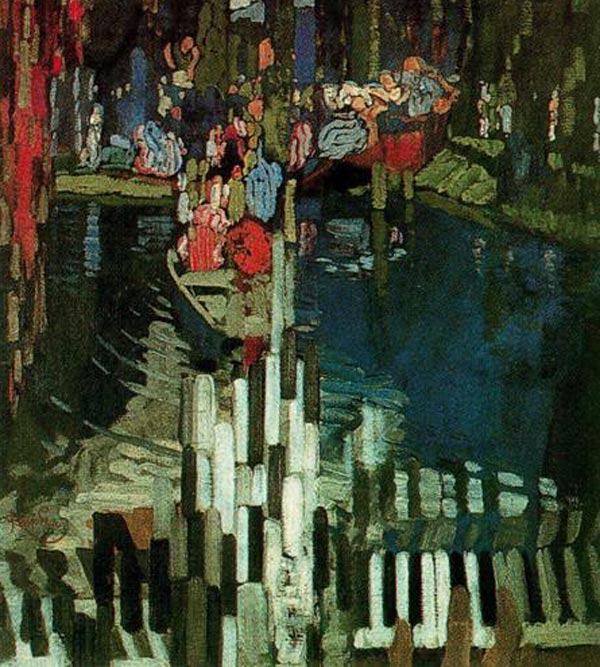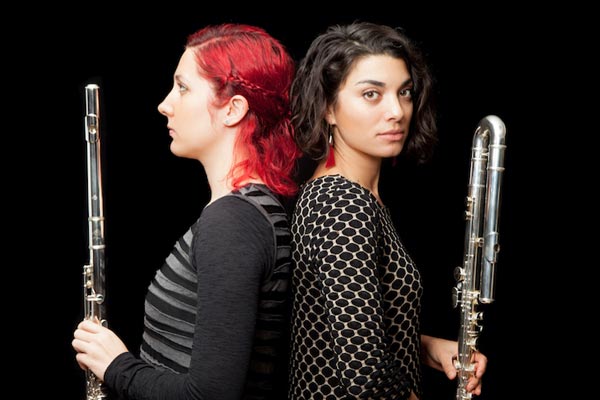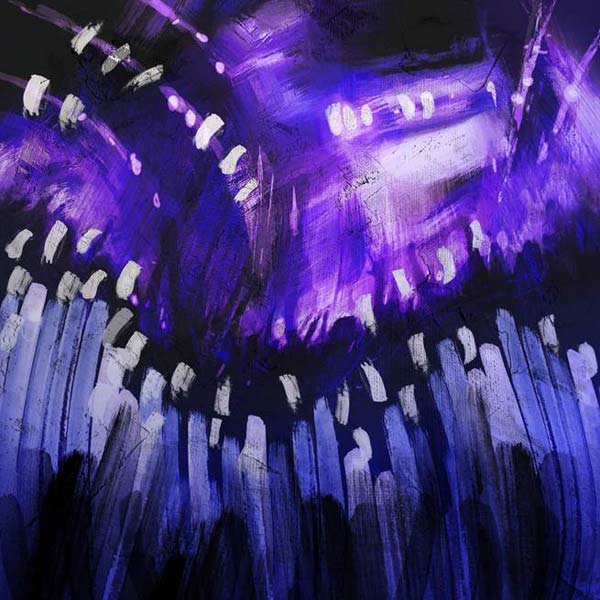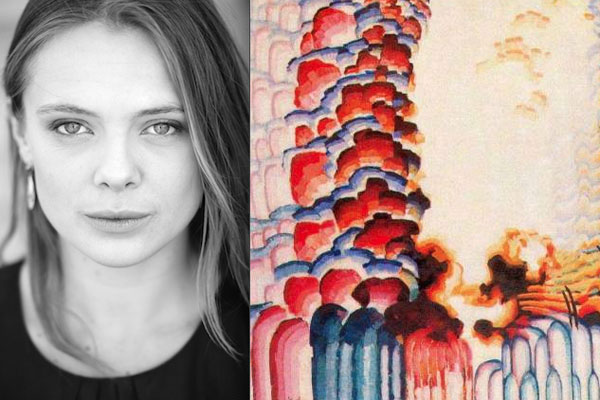Music ensemble Kupka’s Piano travel back to pre-WW1 Germany to perform Arnold Schoenberg’s ‘Pierrot Lunaire’.
The melodrama has been labelled a masterpiece in music modernism, exploring the bewitching life of Pierrot the Clown as he ruminates on desire, decadence, and death.
Kupka’s Piano ensemble member Liam Flenaday says, “it’s an epic 40-minute song cycle part cabaret part melodrama from that era. It was written by a cranky old German guy in 1912 and probably the oldest work we’ve ever done. We normally play much more contemporary things, but we wanted to sink our teeth into this piece because we don't feel like it’s been played enough. “It’s challenging music... not everybody wants to listen to it in their car coming home from work (well maybe some weird people do). Maybe people want to listen to something a bit less challenging. But I think the whole idea of Kupka’s Piano is to try to encourage people and stimulate people, and engage people to come to these concerts where you’re in quite a relaxed, quiet environment. You get a beer, have a chat, listen to the concert. And then you get to expose yourself, your ears, your brain, to things that the rest of society will never present to you.
“It’s challenging music... not everybody wants to listen to it in their car coming home from work (well maybe some weird people do). Maybe people want to listen to something a bit less challenging. But I think the whole idea of Kupka’s Piano is to try to encourage people and stimulate people, and engage people to come to these concerts where you’re in quite a relaxed, quiet environment. You get a beer, have a chat, listen to the concert. And then you get to expose yourself, your ears, your brain, to things that the rest of society will never present to you.
“[Music like this] is just not on the radar... it’s not something on TV, or your workplace, or your pub... What we’re trying to do is present ‘Pierrot’ with a certain energy, a certain intensity you won’t get anywhere else.
“It’s sort of an alluring nod towards the mainstream that really challenges us, and makes us learn more about ourselves and expand the range of what we perceive and what we understand about art, and about life; so they’re bold claims, but hopefully we can do it.
“Often art in today’s world is about entertainment, and there’s nothing wrong with that. I think we want to be entertained. But ideally there’s a space as well for something more than just entertainment.
“'Pierrot’ was written during a time where soldiers were marching, and it was a dark time, and a very backwards time, so in a sense the poems were digging up all the nasty stuff and presenting it to people where mainstream society might repress, in a certain Freudian way. But you know, [this is] nasty stuff that society at large don’t want to talk about, and it was more or less shining a spotlight on it. Or bringing it up and presenting it to people who were like, ‘look, not everything is good.’
“What followed was WW1, [and] I’m not suggesting we’re heading towards another war of the century, but we do live in times where there is a lot of darkness and there is a lot of massive problems going on that the mainstream do not want to talk about. “And in a sense there is still power in this work of Schoenberg because there are still some of those fundamental tensions, fundamental drives, and there’s still a certain fear and anxiety that is in the music and the poems that still speaks to us. Because we still have certain things from 100 years ago that haven’t really been resolved.”
“And in a sense there is still power in this work of Schoenberg because there are still some of those fundamental tensions, fundamental drives, and there’s still a certain fear and anxiety that is in the music and the poems that still speaks to us. Because we still have certain things from 100 years ago that haven’t really been resolved.”
Liam says there is a niche scene in Brisbane that presents pre-misconceptions about Kupka's Piano. “We come up against barriers and misconceptions about the kind of music we’re playing. Some people think our music is for highly educated people, highly educated musicians, and that’s often the perception when we’re playing quite difficult music on instruments that are associated with western classical music. They assume that you have [to study at the] Conservatorium to understand this stuff, but we don’t believe that. We think that people who have gone to the Conservatorium are at a disadvantage trying to understand the music because it’s so different, and each piece has its own logic, its own aesthetic, its own framework.
“And so we’re trying to appeal to anybody who is interested in new experiences – whether they’re art gallery goers, or theatre goers, or whatever – and say ‘you can enjoy this.’ You know, you don’t have to have done an art history degree to become an artist, or to have done a degree in the Conservatorium to play in a concert. “[We want to] appeal to anybody who’s interested in something a bit provocative, a bit challenging, something that will get them out of their comfort zone. So we’re not making any apologies for the difficulty of the music, we’re not trying to play it down, but we’re actually saying there’s probably a hell of a lot more people out there who want something a bit crazy to listen to than the mainstream.
“[We want to] appeal to anybody who’s interested in something a bit provocative, a bit challenging, something that will get them out of their comfort zone. So we’re not making any apologies for the difficulty of the music, we’re not trying to play it down, but we’re actually saying there’s probably a hell of a lot more people out there who want something a bit crazy to listen to than the mainstream.
“There’s [also] a sense of catharsis in listening to quite challenging music. Because it’s so outside of things. We’re so bombarded. I mean...I really love pop music (the good pop music anyway), but we get bombarded by it, and often the stuff we hear on the radio is repeated and drummed into your head, so it’s kind of nice to go and really just listen to music that is so intense, and so different-it’s like a palate cleanser. For me, it feels like some kind of spiritual purification. It’s so different and so fresh.”
Kupka’s Piano perform ‘Pierrot’ at the Judith Wright Centre 10 June.


